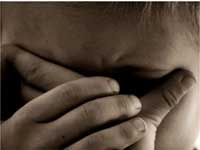Just In
- 3 hrs ago

- 3 hrs ago

- 4 hrs ago

- 5 hrs ago

Don't Miss
- Movies
 Varshangalkku Shesham Review By Mohanlal: A Heartfelt Reflection On Nostalgia And Life's Journeys
Varshangalkku Shesham Review By Mohanlal: A Heartfelt Reflection On Nostalgia And Life's Journeys - Automobiles
 Raptee Energy Marks A New Era In EV With First Electric Motorcycle Launch
Raptee Energy Marks A New Era In EV With First Electric Motorcycle Launch - Finance
 CRISIL March 2024 Quarter Sees 5.51% Net Profit Drop; Dividend Announced
CRISIL March 2024 Quarter Sees 5.51% Net Profit Drop; Dividend Announced - News
 Karnataka Weather: Will It Rain Or Won't It? Bengaluru's Weather Forecast Offers A Glimpse Of Hope
Karnataka Weather: Will It Rain Or Won't It? Bengaluru's Weather Forecast Offers A Glimpse Of Hope - Sports
 ICC Women's ODI Batting Rankings: Laura Wolvaardt overtakes Ellyse Perry to climb into top 5; Smriti Mandhana holds firm at No. 4
ICC Women's ODI Batting Rankings: Laura Wolvaardt overtakes Ellyse Perry to climb into top 5; Smriti Mandhana holds firm at No. 4 - Technology
 Garena Free Fire Max Redeem Codes for April 16: Get Access to the Latest In-game Loot
Garena Free Fire Max Redeem Codes for April 16: Get Access to the Latest In-game Loot - Education
 UPSC CSE Result 2023 Declared, Check the Full List of Selected Candidates Here
UPSC CSE Result 2023 Declared, Check the Full List of Selected Candidates Here - Travel
 From Coconut Breaking on Head to Men Dressing as Women: 12 Unique Indian Rituals Explored
From Coconut Breaking on Head to Men Dressing as Women: 12 Unique Indian Rituals Explored
Depressed Kids Have More Sleep Problems

Researchers at the Center of Pediatric Sleep Disorders at the University of Rome La Sapienza in Italy, have found that children suffering from depression and anxiety disorders have more sleep problems.
The study suggests that for a small percentage of children, sleep problems might represent a pre-cursor or early symptom of a more serious emotional disorders, including anxiety and depression.
The
study,
authored
by
Flavia
Giannotti,
MD,
was
conducted
on
122
children
between
seven
and
11
years
of
age,
who
had
a
major
depressive
disorder.
All
patients
underwent
a
systematic
psychiatric,
cognitive
and
sleep
evaluation.
All
children
were
medication-free.
Depressed children, as well as those presenting a comorbid anxious disorder, entered the study, and their results were compared to those of 200 healthy peers.
According to the results, 82 percent of the depressed children reported a problematic sleep, compared to five percent of healthy controls. In the depressed group, 42 percent of comorbid children showed a significantly higher frequency of sleep onset insomnia, compared to 29 percent of the non-comorbid group.
They scored significantly higher on the “bedtime difficulties", “sleep anxiety", and “sleep duration" portions of the Children"s Sleep Habits Questionnaire than the non-comorbid group. Comorbid and non-comorbid depressed children showed a significant tendency to a later bedtime (50 minutes) and a more markedly fragmented sleep than controls (35 minutes).
Twenty percent of comorbid depressed children shared their parents" bed (20 percent), compared to 17 percent of non-comorbid and five percent of healthy controls.
“Sleep problems are very common in typically developing children. Even though they are more frequent in toddlers and preschoolers, they affect also school-aged children," said Dr. Giannotti.
“What was most interesting about this study was the finding that certain types of comorbid conditions might be especially disruptive on sleep. Therefore, in childhood, considerable attention needs to be paid to the interrelation between sleep patterns and emotional disorders.
“To ensure the most effective care, parents of sleep-disturbed children are advised to first consult with the child's pediatrician, who may issue a referral to a sleep specialist for comprehensive testing and treatment," she added.
The findings will be presented at SLEEP 2008, the 22nd Annual Meeting of the Associated Professional Sleep Societies (APSS).
-
 pregnancy parentingEmbracing Boredom In Early Childhood: Where Fun And Learning Meet
pregnancy parentingEmbracing Boredom In Early Childhood: Where Fun And Learning Meet -
 pregnancy parentingKidulting: Where Adulthood and Nostalgia Collide in the Best Possible Way
pregnancy parentingKidulting: Where Adulthood and Nostalgia Collide in the Best Possible Way -
 faith mysticismSwami Vivekananda Jayanti 2023: Three Anecdotes From Swami Vivekananda’s Childhood
faith mysticismSwami Vivekananda Jayanti 2023: Three Anecdotes From Swami Vivekananda’s Childhood -
 basicsPhysical Activity During Childhood May Help Improve Cognitive Functions Later In Life, Study
basicsPhysical Activity During Childhood May Help Improve Cognitive Functions Later In Life, Study -
 babyHealthy Habits In Mothers Could Reduce The Risk Of Obesity In Children
babyHealthy Habits In Mothers Could Reduce The Risk Of Obesity In Children -
 parents and children6 Amusing Things That We Believed To Be True In Our Childhood
parents and children6 Amusing Things That We Believed To Be True In Our Childhood -
 parents and children11 Childhood Memories That You Made While Growing Up With Your Siblings
parents and children11 Childhood Memories That You Made While Growing Up With Your Siblings -
 love and romanceAttachment Theory Reveals How We Develop Attachment
love and romanceAttachment Theory Reveals How We Develop Attachment -
 newsChildhood Obesity Increasing Alarmingly – Warns WHO
newsChildhood Obesity Increasing Alarmingly – Warns WHO -
 basicsStudy: Huge Drop In Today's Men's Sperm Levels!!
basicsStudy: Huge Drop In Today's Men's Sperm Levels!! -
 pulseIf You Are A 90's Kid, Then This List Will Surely Refresh Your Memory!
pulseIf You Are A 90's Kid, Then This List Will Surely Refresh Your Memory! -
 wellnessChronic Childhood Illness May Increase Depression Risk Later
wellnessChronic Childhood Illness May Increase Depression Risk Later


 Click it and Unblock the Notifications
Click it and Unblock the Notifications



